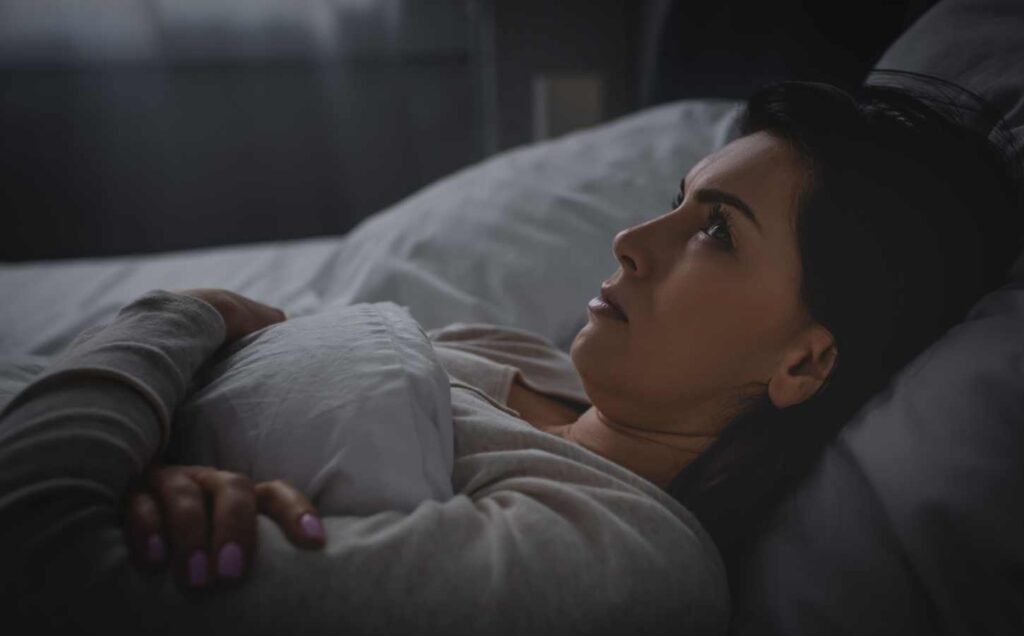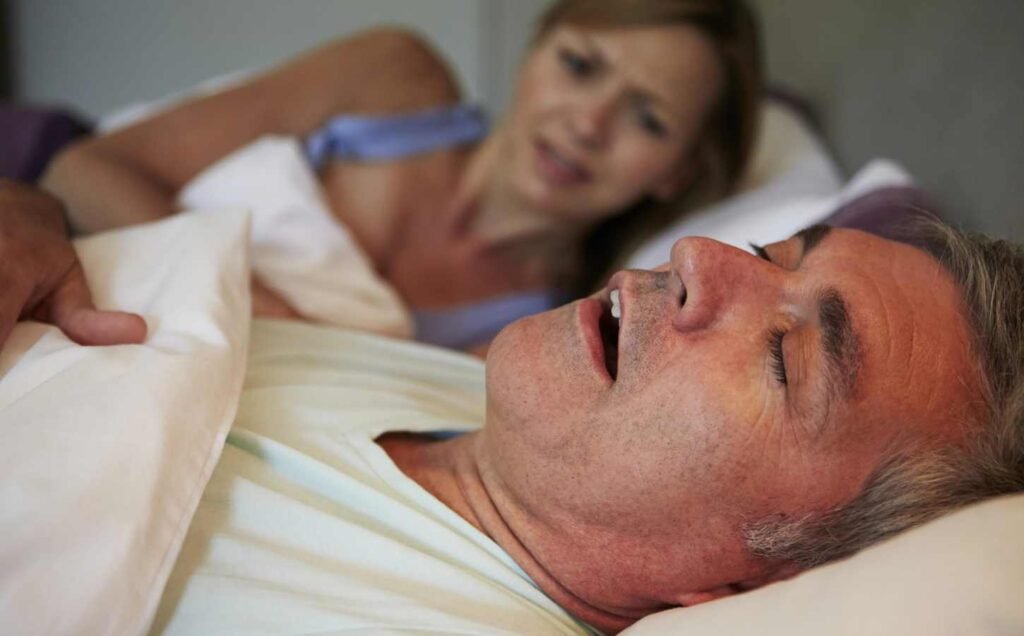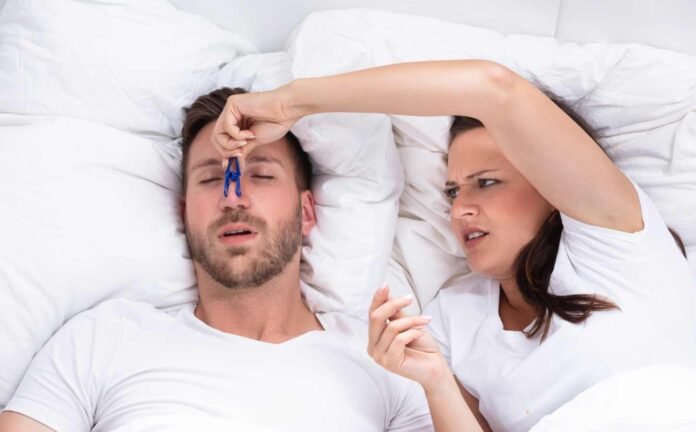Snoring can disrupt sleep and impact overall well-being.
Many people seek effective solutions to this common problem. Anti-snoring devices offer a range of options to help reduce or eliminate snoring, improving sleep quality for both snorers and their partners.
These devices come in various forms, from nasal strips and mouthpieces to chin straps and positional aids. Each type targets different causes of snoring, such as nasal congestion, tongue position, or sleeping posture. In this article we’ll help you choose the best anti-snoring devices for sleep, based on individual needs and the underlying reasons for snoring.
Some anti-snoring devices are more suitable for occasional snorers, while others are designed for those with chronic snoring or sleep apnea. It’s important to consult a healthcare professional to determine the best approach for addressing snoring issues and ensuring optimal sleep health.
Looking for something you, or your sleeping partner, can try tonight? Try these simple throat exercises that can stop even the most persistent Snoring and Sleep Apnea from the very first night.
Key Takeaways
- Anti-snoring devices can significantly improve sleep quality for snorers and their partners
- Various types of devices target different causes of snoring, from nasal congestion to sleeping position
- Consulting a healthcare professional helps determine the most effective anti-snoring solution for individual needs
Understanding Snoring and Its Impact on Health
Snoring occurs when airflow through the mouth and nose is partially obstructed during sleep. This obstruction causes the surrounding tissues to vibrate, producing the characteristic snoring sound.
While occasional snoring may be harmless, chronic snoring can indicate a more serious condition called obstructive sleep apnea (OSA). OSA involves repeated pauses in breathing during sleep, disrupting oxygen flow to the body.
Chronic snoring and OSA can lead to various health issues:
- Daytime fatigue and sleepiness
- Increased risk of high blood pressure
- Higher chances of heart disease and stroke
- Memory problems and difficulty concentrating
- Mood changes and irritability
Snoring can also affect bed partners, potentially causing relationship strain and sleep deprivation for both individuals.
Factors that contribute to snoring include:
- Obesity
- Nasal congestion
- Alcohol consumption before bed
- Sleeping position (back sleeping often worsens snoring)
- Age (as people get older, throat muscles may relax more during sleep)
Identifying the underlying cause of snoring is crucial for effective treatment. Medical professionals can perform sleep studies to diagnose OSA and recommend appropriate interventions.
Addressing snoring and OSA can significantly improve sleep quality, daytime functioning, and overall health. Treatment options range from lifestyle changes to medical devices and, in some cases, surgery.
Types of Anti-Snoring Devices
Various anti-snoring devices target different causes of snoring. These devices range from simple nasal strips to advanced CPAP machines, offering solutions for different snoring issues and sleep preferences.
Mandibular Advancement Devices (MADs)
MADs are mouthpieces that reposition the lower jaw slightly forward. This adjustment helps keep the airway open during sleep, reducing snoring. Custom-fitted MADs are available through dental professionals, while over-the-counter options can be molded at home.
MADs are effective for many snorers, especially those with mild to moderate sleep apnea. Some models are adjustable, allowing users to fine-tune the jaw position for optimal comfort and effectiveness.
Potential side effects include jaw soreness and tooth movement. Users should consult a dentist before long-term use.
If you like to invest in a Mandibular Advancement Device, check the various options and prices on Amazon: *Tranquility PRO 2.0 Anti-Snoring Mouth Guard
*We participate in Amazon’s affiliate program, which means we may earn a small commission if you purchase through links on this page, at no additional cost to you.
Tongue Retaining Devices
These devices hold the tongue forward during sleep, preventing it from falling back and obstructing the airway. They resemble a pacifier with a suction bulb that gently holds the tongue in place.
The Good Morning Snore Solution is a popular tongue retaining device. It’s less invasive than MADs and doesn’t affect jaw position, making it suitable for those with dental issues or TMJ problems.
Tongue retaining devices can be effective for snorers whose tongue position contributes to their snoring. They may cause temporary tongue soreness or drooling during initial use.
If you like to invest in a Good Morning Snore Solution, check the various options and prices on Amazon: *Anti Snoring Device Mouthpiece Mouth Guard for Men and Women
*We participate in Amazon’s affiliate program, which means we may earn a small commission if you purchase through links on this page, at no additional cost to you.
Nasal Dilators
Nasal dilators are small devices inserted into the nostrils to widen the nasal passages. They improve airflow through the nose, reducing snoring caused by nasal congestion or narrow nasal passages.
The *Rhinomed Mute Nasal Dilator (Amazon.com link) is a popular option. It comes in different sizes for a comfortable fit and can be adjusted for each nostril independently.
Nasal dilators are non-invasive and don’t require a prescription. They’re particularly effective for snorers with nasal congestion or deviated septums.
Some users may experience mild discomfort or irritation in the nostrils during initial use.
Nasal Strips
Nasal strips are adhesive bands placed across the bridge of the nose. They gently pull open the nasal passages, improving airflow and reducing snoring.
These strips are easy to use, affordable, and widely available. They’re most effective for snorers with nasal congestion or small nostrils.
Nasal strips (Amazon.com Link) provide immediate results without side effects. However, they may not be as effective for severe snoring or sleep apnea.
Some users may experience skin irritation from the adhesive. Hypoallergenic options are available for sensitive skin.
Anti-Snoring Pillows
Anti-snoring pillows are designed to promote optimal head and neck alignment during sleep. They often feature contoured shapes or adjustable heights to support proper positioning.
These pillows can help reduce snoring by:
- Encouraging side sleeping
- Aligning the spine and airways
- Supporting the neck to prevent airway collapse
Anti-snoring pillows (Amazon.com Link) are non-invasive and can benefit various sleep positions. However, their effectiveness varies among individuals and may not address all causes of snoring.
CPAP Machines
Continuous Positive Airway Pressure (CPAP) machines are medical devices that deliver a constant stream of air through a mask. This airflow keeps the airways open, effectively treating sleep apnea and severe snoring.
CPAP machines require a prescription and are typically recommended for diagnosed sleep apnea. They’re highly effective when used consistently but may require an adjustment period.
Modern Continuous Positive Airway Pressure machines are quieter and more comfortable than older models. Many feature humidifiers and data tracking capabilities to improve user experience and treatment efficacy.
Smart Devices
Smart anti-snoring devices use technology to monitor and respond to snoring in real-time. These may include:
- Wearable sensors that detect snoring and vibrate to prompt position changes
- Smart beds that adjust elevation when snoring is detected
- Apps that record and analyze snoring patterns
Smart devices offer personalized insights into snoring patterns and sleep quality. They can help users identify triggers and track improvement over time.
Some smart devices integrate with other sleep technologies for comprehensive sleep management. However, their effectiveness in directly reducing snoring varies, and they may be more suitable as complementary tools to other anti-snoring methods.
Factors to Consider When Choosing an Anti-Snoring Device
Selecting the right anti-snoring device involves evaluating several key aspects. These factors ensure the device’s effectiveness, comfort, and long-term usability for better sleep quality.
Effectiveness and Clinical Efficacy
Clinical studies and user reviews provide valuable insights into a device’s effectiveness. Mandibular advancement devices (MADs) have shown promising results in reducing snoring intensity and frequency. Some devices offer adjustable settings, allowing users to fine-tune their effectiveness.
Look for products with documented success rates and scientific backing. Devices that have undergone sleep lab testing often provide more reliable performance data.
It’s important to note that effectiveness can vary between individuals. What works for one person may not work for another due to differences in snoring causes and anatomy.
Comfort and Fit
Comfort is crucial for consistent use and better sleep quality. Devices should not cause jaw pain, tooth discomfort, or excessive drooling.
Many MADs offer customizable fits through boil-and-bite molding. This process creates a personalized impression of the user’s teeth, enhancing comfort and effectiveness.
Adjustable devices allow users to modify the jaw position gradually, reducing discomfort during the adaptation period. Soft, medical-grade materials can also improve comfort levels.
Reusability and Durability
Long-lasting devices offer better value for money. High-quality materials resist wear and tear, ensuring consistent performance over time.
Look for devices with replaceable parts, such as mouthpieces or straps. This feature extends the product’s lifespan and maintains hygiene standards.
Consider the manufacturer’s warranty and customer support. Reliable brands often provide longer warranties and responsive assistance for issues or replacements.
Ease of Use
Simple, user-friendly designs promote consistent nightly use. Devices should be easy to insert, remove, and adjust without complex mechanisms or tools.
Clear instructions and quick-start guides help users adapt to their new device faster. Some products offer companion apps or online resources for additional support and tracking.
For travel convenience, compact and portable designs are preferable. Look for devices that come with travel cases for safe storage and easy transport.
Maintenance and Hygiene
Proper cleaning and maintenance are essential for device longevity and user health. Choose devices with simple cleaning routines that fit into daily schedules.
Materials should be resistant to bacteria and odors. Some devices are dishwasher-safe, offering convenient cleaning options.
Regular replacement of certain components, such as mouthpieces, may be necessary. Check the manufacturer’s recommendations for maintenance schedules and replacement parts availability.
Consider devices with antimicrobial coatings or treatments for added hygiene benefits. These features can help prevent the growth of harmful bacteria and extend the device’s usable life.
Assessing the Root Causes of Snoring
Snoring can stem from various physiological and environmental factors. Understanding these underlying causes is crucial for selecting the most effective anti-snoring device or treatment method.
Deviated Septum and Nasal Congestion
A deviated septum occurs when the thin wall between nasal passages is displaced to one side. This structural irregularity can obstruct airflow and lead to snoring. Nasal congestion, whether from colds or chronic conditions, also narrows air passages.
Congested nasal passageways force air through smaller openings, creating turbulent airflow. This turbulence causes the soft tissues in the upper airway to vibrate, resulting in snoring sounds.
Some individuals find relief from nasal strips or dilators. These devices work by physically widening nasal passages, allowing for smoother airflow.
Allergies and Environmental Factors
Allergies can trigger inflammation in the nasal passages and throat, contributing to snoring. Common allergens include dust mites, pollen, and pet dander.
Air quality plays a significant role in nighttime breathing. Dry air can irritate the throat and nasal passages, while excessive humidity may worsen congestion.
Using air purifiers or humidifiers can help create an optimal sleeping environment. Keeping bedrooms clean and free of allergens may also reduce allergy-related snoring.
Anatomical Considerations and Sleep Position
Certain physical characteristics can predispose individuals to snoring. These include enlarged tonsils, a large tongue, or excess throat tissue.
Sleep position significantly impacts snoring. Back sleepers are more prone to snoring due to the effect of gravity on the tongue and soft palate.
Side sleeping often reduces snoring by preventing the tongue from falling back into the throat. Specially designed pillows can help maintain optimal sleep positions.
Body weight also affects snoring. Excess weight around the neck can put pressure on the upper airway, narrowing air passages.
Exploring Popular Anti-Snoring Products
Various anti-snoring devices have emerged to address different causes of snoring. These products range from simple nasal strips to advanced smart technology, targeting specific snoring issues.
*We participate in Amazon’s affiliate program, which means we may earn a small commission if you purchase through links on this page, at no additional cost to you.
MAD Brands
Mandibular Advancement Devices (MADs) are popular anti-snoring solutions. SnoreRx and SnoreRx Plus (NOT an affiliate link) stand out for their customizable fit. These mouthpieces gently move the lower jaw forward, opening the airway.
ZQuiet (Amazon.com Link) offers a flexible design that allows for mouth breathing. Its hinged technology lets users talk and drink while wearing the device.
MADs are effective for many snorers but may cause temporary jaw discomfort. Regular cleaning is essential to maintain hygiene and extend the product’s lifespan.
Nasal Strips and Dilator Options
Breathe Right nasal strips (Amazon.com Link) are widely recognized for their simplicity and effectiveness. These adhesive strips gently lift nasal passages, improving airflow.
Rhinomed Mute (Amazon.com Link) is an internal nasal dilator that expands the nostrils. It comes in different sizes for optimal fit and comfort.
Nasal solutions are non-invasive and suitable for those who can’t tolerate mouthpieces. They work best for snoring caused by nasal congestion or deviated septums.
Users should replace nasal strips regularly and clean reusable dilators to maintain effectiveness.
Pillows That Promote Proper Sleep Position
Specialized pillows can reduce snoring by encouraging optimal sleep positions. Coop Home Goods (Amazon.com Link) offers adjustable pillows that support side sleeping, which can minimize snoring.
Wedge pillows (Amazon.com Link) elevate the head and upper body, potentially reducing airway obstruction. Some pillows feature contoured designs to align the neck and spine.
The effectiveness of anti-snoring pillows varies among individuals. Users may need to experiment with different styles and heights to find the most comfortable and effective option.
Smart Technology and Sleep Trackers
Smart Nora (NOT an affiliate link) is an innovative system that detects snoring and gently adjusts the sleeper’s head position. It consists of a pillow insert that inflates when snoring is detected.
The Oura Ring (NOT an affiliate link) tracks sleep patterns and can identify snoring episodes. This data helps users understand their sleep quality and potential snoring triggers.
Sleep trackers provide valuable insights into snoring frequency and intensity. They can help users monitor the effectiveness of other anti-snoring methods.
While these devices offer detailed sleep data, they may not directly reduce snoring. Users should combine them with other anti-snoring solutions for best results.
Considering Affordability and Accessibility
Anti-snoring devices come in a wide range of prices, catering to various budgets. Some cost-effective options include nasal strips and chin straps (Amazon.com Link), which are readily available at most pharmacies.
More advanced solutions like mandibular advancement devices can be pricier but offer long-term benefits. These may require professional fitting, potentially impacting accessibility for some users.
Over-the-counter options provide easy access for those seeking immediate relief. Many popular anti-snoring devices can be purchased online or in stores without a prescription.
Affordable snoring solutions:
- Nasal dilators
- Anti-snoring pillows
- Throat sprays
Custom-fitted mouthpieces often carry a higher price tag but can be more effective for severe snoring. Some insurance plans may cover these devices, improving affordability for eligible individuals.
Accessibility varies depending on location and healthcare systems. Urban areas typically offer more options and specialists for snoring treatments compared to rural regions.
Some manufacturers offer trial periods or money-back guarantees, allowing users to test devices without significant financial risk. This approach enhances accessibility by reducing the barrier to entry for those unsure about which solution might work best.
Potential Side Effects and Complications
Anti-snoring devices can cause unintended effects despite their benefits. Users should be aware of possible complications and consult medical professionals when needed.
Dental Effects and Oral Health
Oral appliances like mouthguards may lead to dental issues over time. Prolonged use can cause tooth movement or changes in bite alignment. Some users report jaw discomfort or temporomandibular joint (TMJ) pain.
Regular dental check-ups are crucial when using these devices. Dentists can monitor for signs of tooth wear or TMJ disorders. In some cases, users may develop gingivitis due to increased saliva production or trapped bacteria.
Proper cleaning and maintenance of oral appliances is essential. This helps prevent bacterial growth and potential oral health problems.
Skin Irritations and Nasal Passage Sensitivity
Nasal dilators and adhesive strips can cause skin irritation. Some users experience redness, itching, or rashes where the device contacts the skin. Strong adhesives may lead to skin damage if not removed carefully.
Nasal passage sensitivity is another concern. Overuse of nasal devices can irritate the delicate nasal tissues. This may result in dryness, congestion, or nosebleeds in some cases.
To minimize these issues:
- Choose hypoallergenic materials when possible
- Take breaks from device use periodically
- Apply moisturizer to affected areas
- Clean devices regularly to prevent buildup of allergens
Long-Term Use Considerations
Extended use of anti-snoring devices may lead to dependency. Users might find it difficult to sleep without the device after prolonged use. This can be problematic when traveling or if the device is unavailable.
Some individuals may experience changes in facial structure over time. This is more common with mandibular advancement devices that reposition the jaw.
Long-term safety studies are limited for many anti-snoring devices. Users should:
- Monitor their symptoms regularly
- Report any persistent discomfort to a healthcare provider
- Consider alternating between different types of devices
- Reassess their need for the device periodically with a sleep specialist
Proper fitting and adjustment of devices is crucial for minimizing long-term complications. Regular follow-ups with healthcare professionals can help address any emerging health issues related to device use.
Maximizing Effectiveness and Improving Sleep Quality
Proper usage of anti-snoring devices is crucial for achieving optimal results. Consistency in nightly use allows the body to adjust and maximizes effectiveness.
Choosing the right device for individual needs can significantly improve sleep quality. Some people may benefit from nasal dilators to enhance airflow, while others might find positional therapy devices more helpful.
Regular cleaning and maintenance of anti-snoring aids ensure their longevity and performance. Following manufacturer instructions for care is essential.
Combining multiple approaches can yield better outcomes. For example, using a mouthpiece along with nasal strips may provide more comprehensive snoring reduction.
Adjusting sleeping positions can complement device usage. Back sleeping often exacerbates snoring, so training to sleep on one’s side may enhance device effectiveness.
Lifestyle changes can amplify the benefits of anti-snoring devices. Maintaining a healthy weight, avoiding alcohol before bed, and establishing a consistent sleep schedule contribute to less snoring.
Patience is key when adapting to new snoring aids. It may take several nights for users to feel comfortable and notice improvements in their sleep quality.
Monitoring progress through sleep tracking apps or discussions with sleep partners can help assess the device’s impact on snoring reduction and overall rest quality.
Looking for something you, or your sleeping partner, can try tonight? Try these simple throat exercises that can stop even the most persistent Snoring and Sleep Apnea from the very first night.
FAQ’s: Best Anti-Snoring Devices for Sleep
Anti-snoring devices come in various forms, from mouthpieces to electronic gadgets. Consumer feedback and clinical research provide insights into their effectiveness and popularity.
What are the top-rated anti-snoring devices according to consumer reports?
Consumer Reports highlights several highly-rated anti-snoring devices. These include mandibular advancement devices like SnoreRx and ZQuiet, as well as nasal dilators like Mute.
Tongue-retaining devices like Good Morning Snore Solution also receive positive mentions. Many users report significant reductions in snoring with these products.
Which snoring solutions have received FDA approval?
The FDA has cleared several anti-snoring devices for over-the-counter use. These include certain mandibular advancement devices and nasal dilators.
Specific FDA-cleared products include Zyppah, TheraSnore, and Provent Sleep Apnea Therapy. It’s important to note that FDA clearance indicates safety, not necessarily effectiveness.
Are there any anti-snoring devices that have shown proven effectiveness?
Clinical studies have demonstrated the effectiveness of certain anti-snoring devices. Mandibular advancement devices show consistent positive results in reducing snoring intensity and frequency.
Nasal dilators and throat sprays have also shown promise in clinical trials. The effectiveness often varies depending on the individual’s specific snoring causes.
What are the best-rated anti-snoring devices for sleep available on Amazon?
Amazon’s best-selling anti-snoring products include a mix of different device types. Nasal dilators like Airmax and Breathe Right strips (Amazon.com Link) consistently receive high ratings.
Mouthpieces such as VitalSleep and Tranquility PRO (Amazon.com Links) also rank highly. Many users praise these products for their comfort and effectiveness in reducing snoring.
*We participate in Amazon’s affiliate program, which means we may earn a small commission if you purchase through links on this page, at no additional cost to you.
What do reviews say about the latest electronic anti-snoring gadgets?
Reviews of electronic anti-snoring gadgets are mixed. Some users report significant improvements with devices like Smart Nora and Philips SmartSleep Snoring Relief Band (discontinued).
Critics often mention issues with comfort and consistency. Many reviewers appreciate the non-invasive nature of these devices compared to mouthpieces.
Which mouthpieces are recommended for sleep apnea and snoring relief according to user feedback?
User feedback frequently recommends mandibular advancement devices for sleep apnea and snoring relief. Products like SomnoDent and VitalSleep (neither of these are affiliate links) receive positive reviews for their comfort and effectiveness.
Tongue-retaining devices like Good Morning Snore Solution also garner praise. Users with sleep apnea often report improved sleep quality and reduced snoring when using these mouthpieces.
Best Magnesium Supplements for Sleep: Top Choices for Restful Nights

Are sleep troubles keeping you up at night? Magnesium might be the answer! With so many types available, finding the right supplement can feel overwhelming.
In this post, we break down the top magnesium options for sleep, explaining their unique benefits and how they can help you achieve a restful night. Ready to find your ideal magnesium match?
Continue reading: Best Magnesium Supplements for Sleep
I Can’t Sleep What Should I Do? Tips and Tricks to Help You Get Some Rest

Getting a good night’s sleep is essential for overall health and well-being. Making lifestyle adjustments can be an effective way to improve sleep quality. This article provides some tips on how to make these adjustments.
Continue reading: I Can’t Sleep What Should I Do?
Primary Snoring: Causes, Symptoms, and Treatment Options

Think snoring is just a harmless annoyance? It could be a sign of something more. Primary snoring, though not usually risky, can impact sleep quality and well-being for both you and your partner.
Learn how to recognize primary snoring and when it might indicate a more serious condition like obstructive sleep apnea. Don’t let snoring disrupt your life—find out when to seek help!
Continue reading: Primary Snoring: Causes, Symptoms, and Treatment Options



